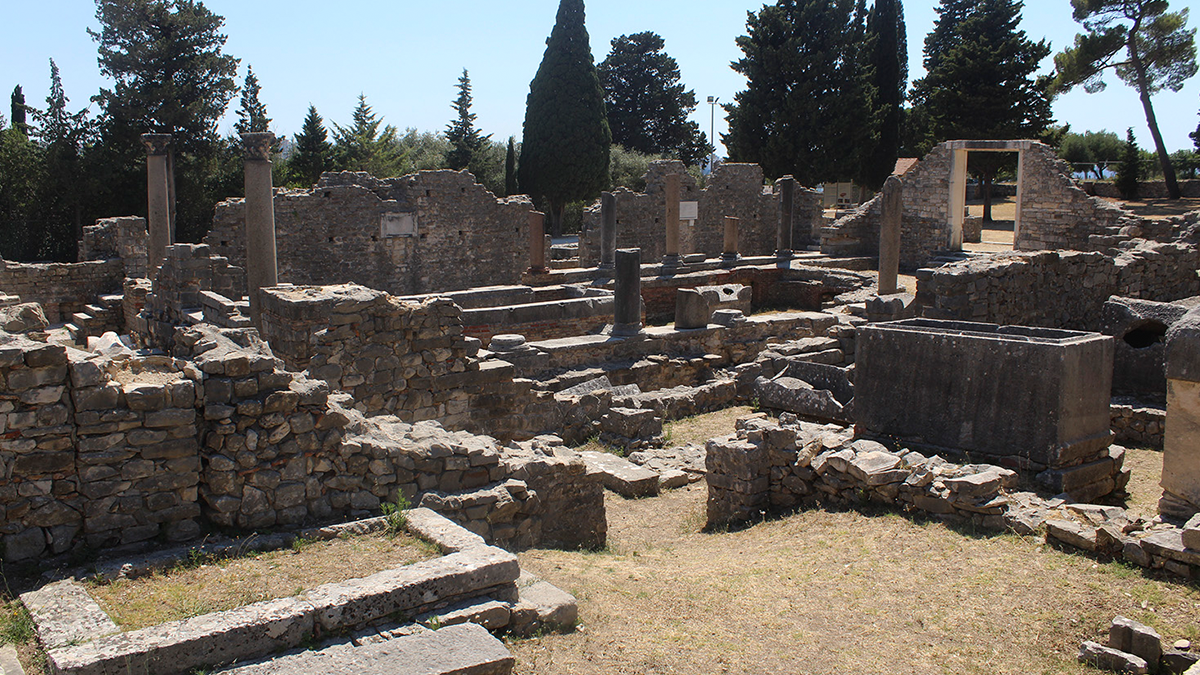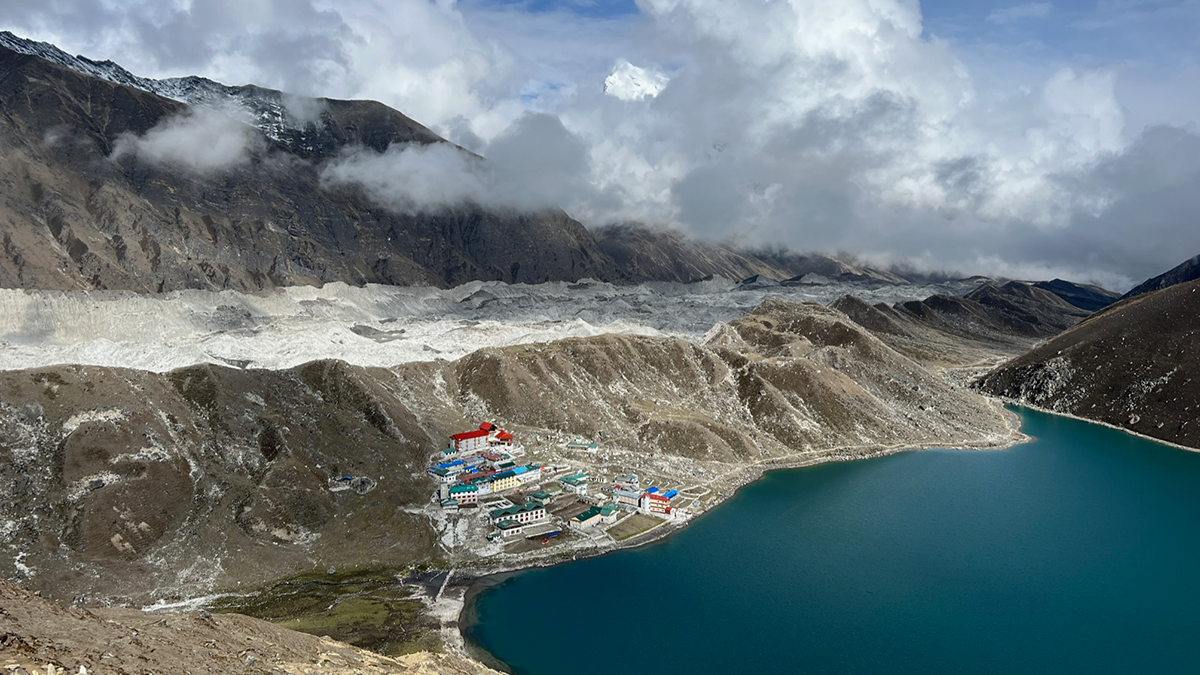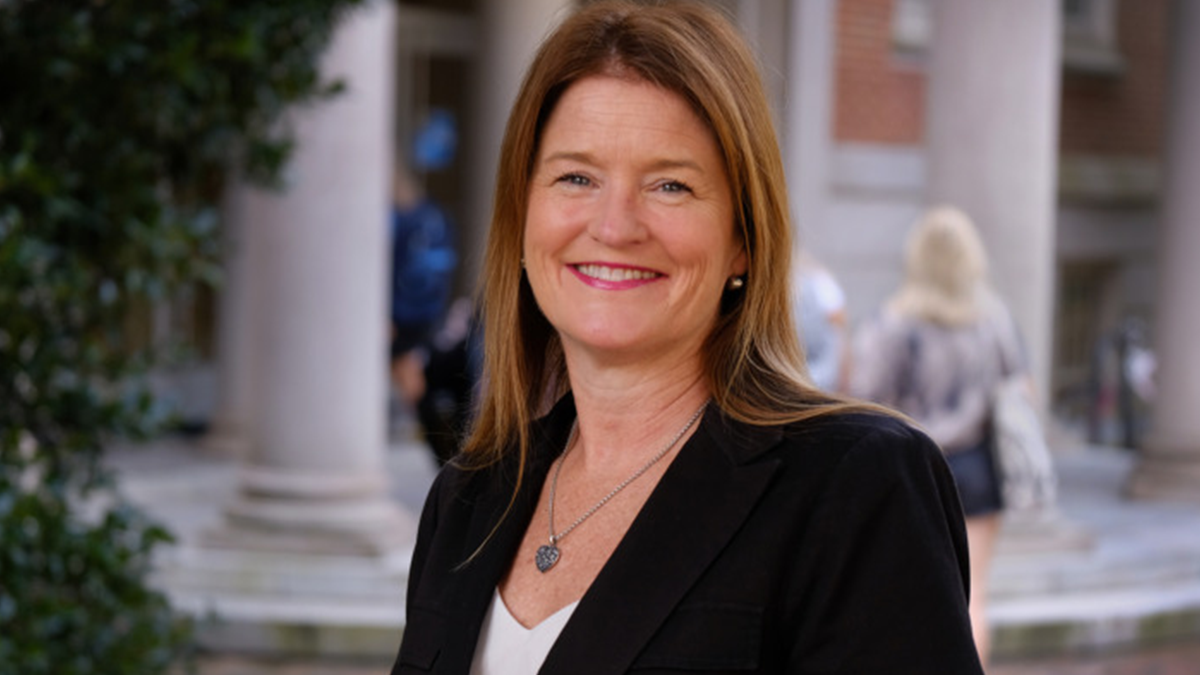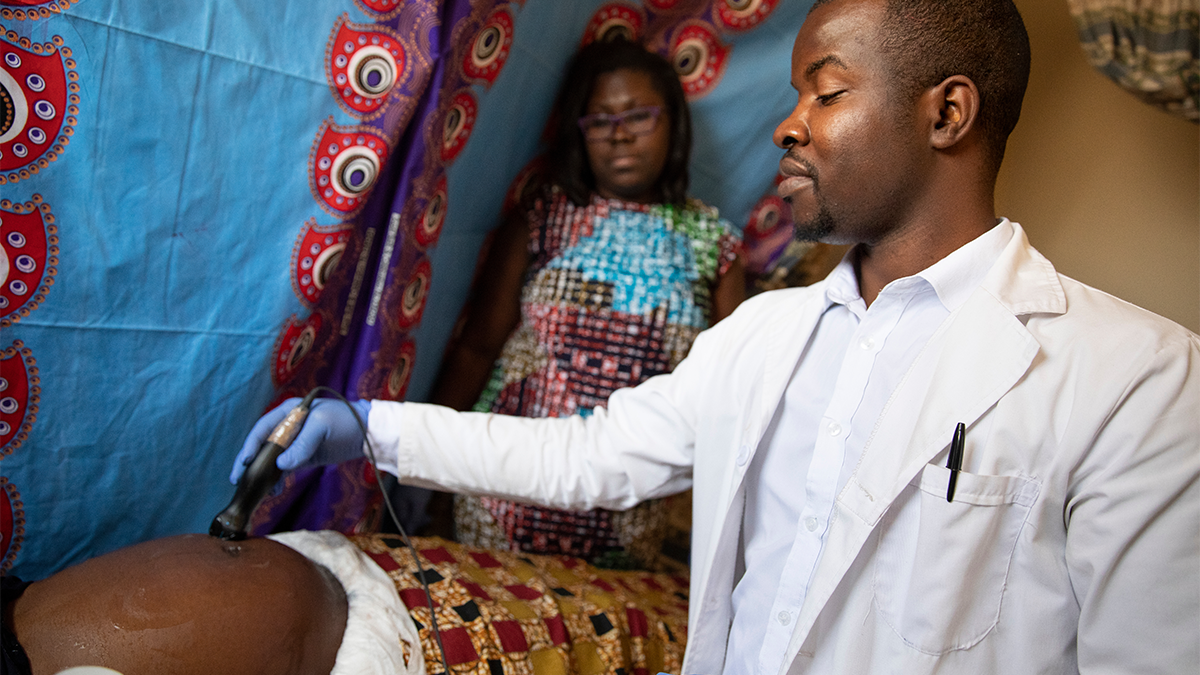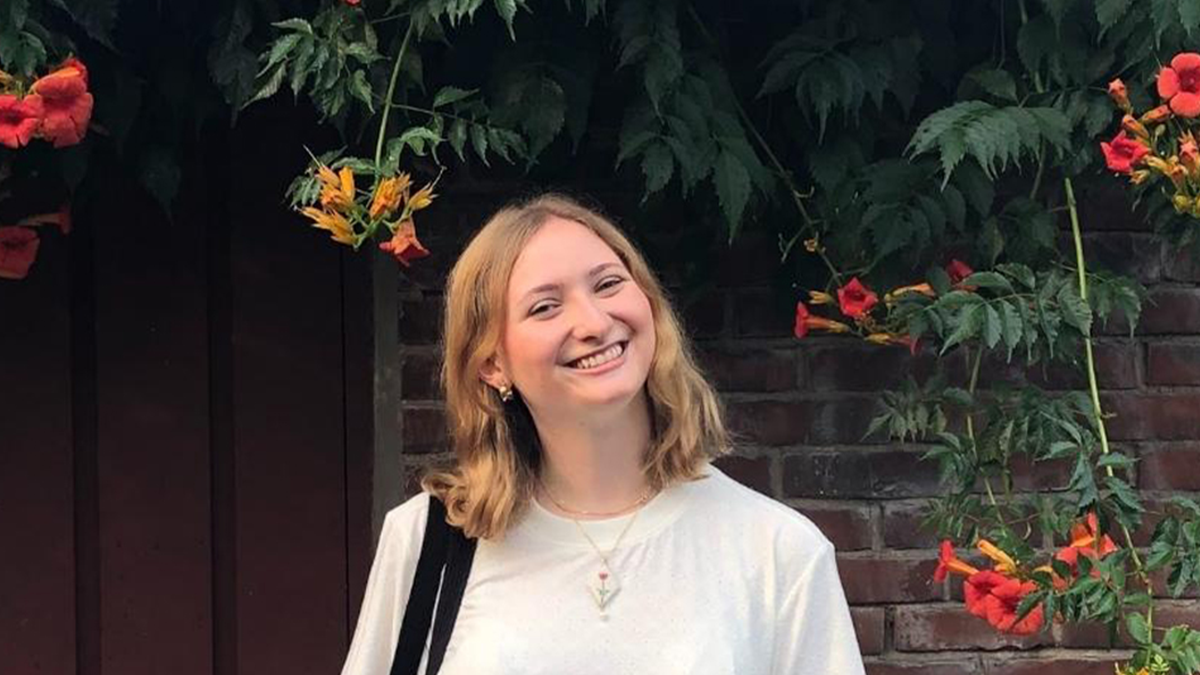Putting Galapagos Farmers on the Map
Published on June 9, 2021Combining aerial drone photography and interviews with local farmers, Francisco Laso ’21 (Ph.D.) is mapping farmland on the Galápagos Islands in his native Ecuador.
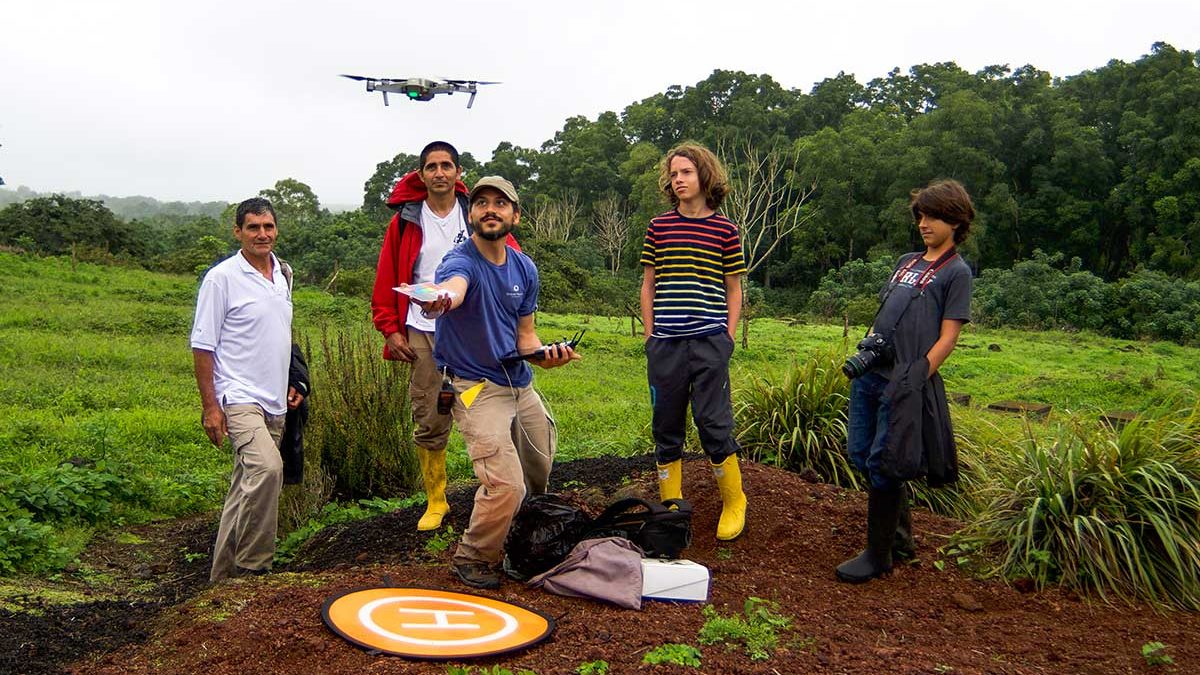
Combining aerial drone photography and interviews with local farmers, Francisco Laso ’21 (Ph.D.) is mapping farmland on the Galápagos Islands in his native Ecuador.
When Francisco Laso ’21 (Ph.D.) was a field research assistant at the Galápagos National Park in 2010, he was shocked to learn that there was very limited collaboration with farmers on conservation issues. The Galápagos Islands are known for their unique endemic species, but their humid highlands are also home to the islands’ agricultural region. Laso, originally from Quito, Ecuador, has spent the past decade addressing this topic through his research.
“Most people are really surprised to hear that there is farming going on in the postcard images that they see from the Galápagos,” Laso said. “I saw this huge blind spot in how we thought of conservation in the Galápagos.”
When Laso started his doctoral program in geography at UNC-Chapel Hill, he wanted to help put farmers on the map – literally. Previous maps of the islands showed protected areas in extensive detail, but agricultural areas were only shown in swaths of blank spaces. Through collaboration with Carolina’s Center for Galapagos StudiesOpens in new window, a key part of Laso’s research was creating a new map of land cover and land use that would include farmers’ perspectives.
Using a drone or unmanned aerial vehicle (UAV), he photographed farmland in the agricultural highlands and worked with local farmers to categorize the land in a way that was relevant to them, not just to conservationists. Laso also interviewed agricultural producers and helped organize a knowledge exchange between them and scientists. He emphasized the value in this exchange because it allowed for visualization of “how agriculture and conservation can actually complement each other, and where there are conflicts.” Laso acknowledged the importance of recognizing the conflicts and their origins as an initial step toward solving them.
Encountering the Galápagos and finding Carolina
Laso has always been fascinated by the natural world. He remembers examining bugs and lizards as a kid. When he was 17, he had the opportunity to volunteer on the Galápagos Islands for the first time. After completing his bachelor’s degree in ecology, evolution and environmental biology from Columbia University and a joint degree master’s program in evolutionary biology from the University of Groningen in the Netherlands and the University of Montpellier University in France, Laso decided to return to Ecuador, and he has now been working on conservation projects and research in the Galápagos for a decade.
Laso was teaching local students with Ecology Project International when he decided to pursue his doctorate at UNC-Chapel Hill. He was drawn to Carolina’s work on the socio-natural world.
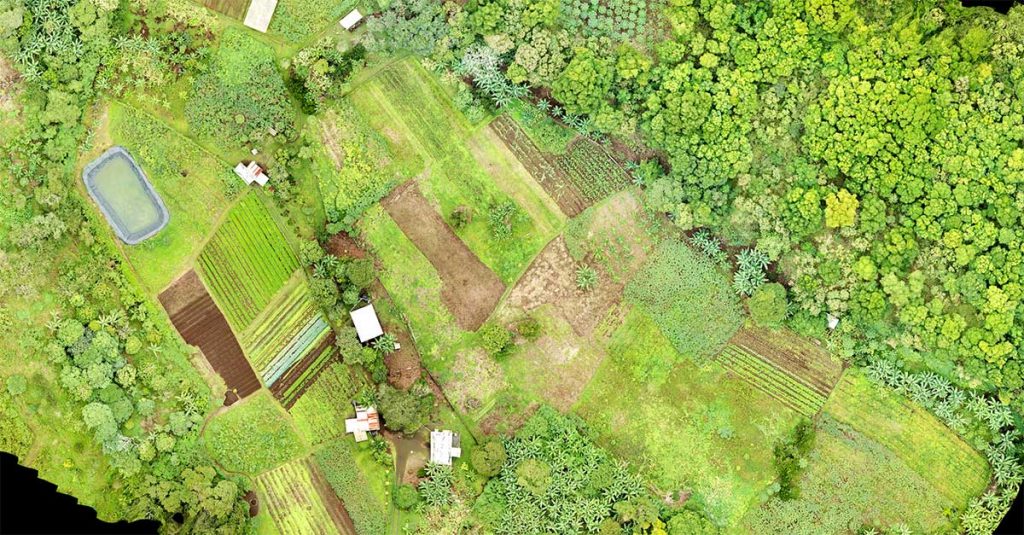
Aerial images of farms in the Galápagos reveal that agricultural areas are extremely diverse and complex environments that mix introduced and native flora.
“I’m no longer interested in just looking at one species or just the ecological perspective. That wasn’t enough. I knew that I had to view humans in this complex way, and only one place on this entire planet has that perspective with a focus on Galápagos, with a research center on Galápagos, so that was just a no-brainer.”
That research center is the Galapagos Science CenterOpens in new window (GSC), a collaboration between UNC-Chapel Hill and the Universidad San Francisco de Quito that integrates research, education and outreach across various dimensions of ecology.
Laso was originally attracted to the field of ecology because he wanted to work with plants and animals. However, like the early maps of the Galápagos, he wasn’t taking one element into account: the human element.
“My training in ecology and evolutionary biology was useful for understanding environmental patterns using quantitative methods, but biologists tend to be ill-equipped to interpret the social dimensions in which these patterns play out. UNC’s geography department has opened my eyes to the theory and the methods that allow me to integrate the human dimensions into the analysis.”
Leading the next generation of conservation
Once he completes his doctorate, Laso hopes to continue working on conservation in his home country and training the next generation of scientists to do the same. The relationships he has built while working at the GSC will be essential to that goal.
“UNC has prepared me by connecting me with world-class scientists and educators that are already working in the location of my interest, so I am immensely grateful for this experience.”

